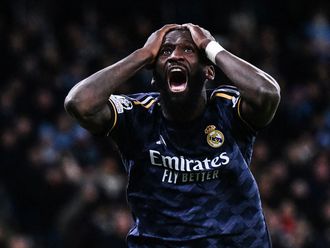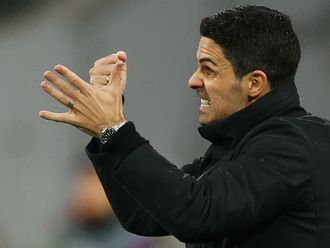London: Fernando Torres has made the stunning admission that there were times during Chelsea’s Champions League- winning season when wasn’t bothered if they won or lost.
Didier Drogba’s penalty against Bayern Munich last May meant the west London club could, for the first time, call themselves European champions.
But while the triumph will go down as the career highlight of a number of Chelsea players, for Torres it marked the end of a season in which, he admits, he turned his back on his own values.
The Spain striker was reduced to a bit-part player at Stamford Bridge last season as Drogba continued to be the driving force behind Chelsea’s attacking game.
Torres says he became so disillusioned that winning football matches was no longer the be all and end all for him.
“Halfway through last season, I distanced myself from the values I had grown up with,” Torres (right) told Spanish daily newspaper El Pais. “I had teammates who didn’t care if the team won or lost because they were not playing. I never wanted to be like that. But one day I discovered that I was like them; that it didn’t matter if we won or lost if I was not playing.
“I wasn’t part of the group. I discovered that I was not happy because I had stopped being what I had always wanted to be. In the dressing room, you can never lose that group concept.”
Thankfully for Torres, he is now Di Matteo’s No. 1 centre forward and his six goals this season suggest he is returning to the form that tempted Chelsea to pay £50 million to sign him from Liverpool in 2010.
But Torres admits it has taken him time to adapt his style to Chelsea’s team ethic.
“I learned to look at myself and to realise that the only person that can change is you,” he said. “The only person who can say, ‘You’re making mistakes, you’ve got to do something,’ is you. I became more mature, I came to know myself better and became conscious of the fact that it depends on me.
“I learned to be more self-critical, to understand everyone better and to accept the situation.
“I learned that if we won it didn’t matter that I hadn’t played. I had to keep working. You can settle into a comfort zone or you can accept your role. I became a different player because I was serving the team.
“I can now do things that I was not able to before. You can be the player that your coach wants but you’re not the player that people expect you to be. I spoke to Steve Holland, the Chelsea assistant, a lot and we worked hard on it.
“When I retire the only thing that concerns me is that no one can say that I was a bad teammate or disrespectful or self-important.”











